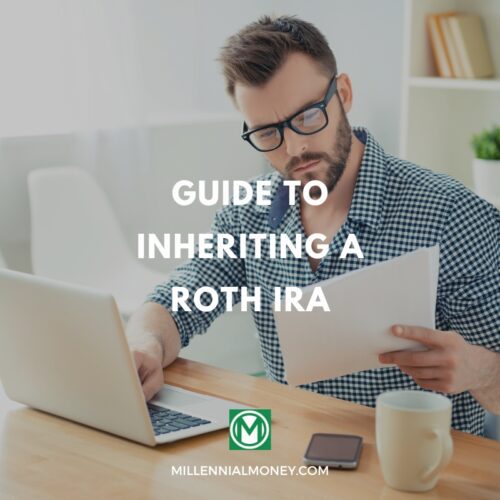It’s normal to want to pass your resources onto your loved ones when you’re no longer around to enjoy it, but you’ll need a bulletproof strategy to ensure your assets can provide maximum benefit. Inheritance tax is a commonly misunderstood area of personal finance because there isn’t a simple answer to the question, “Do I pay tax on inheritance?”
Various factors, including your location and the value of the inheritance, can determine whether you’ll need to share a part of your newfound wealth with Uncle Sam.
In this blog post, we’ll dive deep into inheritance tax so you can make informed decisions and plan accordingly. Understanding the inheritance tax laws can save you from unexpected financial surprises.
What is Inheritance Tax?
Inheritance tax is imposed on a deceased person’s estate, including their property, money, and possessions.
It is levied on the estate’s total value above a certain threshold, known as the inheritance tax threshold or the nil-rate band. The specific threshold may vary depending on the jurisdiction. While there isn’t a federal inheritance tax, there are federal estate taxes.
The purpose of state inheritance tax is to generate revenue for the government and ensure a fair distribution of wealth. It is worth noting that inheritance tax regulations can differ between countries, so it’s essential to familiarize yourself with the specific rules governing your jurisdiction.
In the United States, these rules are enforced by the Internal Revenue Service (IRS) and state governments.
The responsibility of paying inheritance tax typically falls on the beneficiaries or heirs of the deceased person’s estate.
However, it’s important to understand that the tax is usually paid from the estate’s assets before beneficiaries receive them. In other words, the estate is responsible for settling the tax liability.
Sometimes, the deceased person may have specified how to pay the inheritance tax in their will. If you are planning ahead, we recommend you consult a legal professional or tax advisor to ensure compliance with the laws and regulations.
How Much Money Can You Inherit Before You Pay Taxes on It?
The specific tax rules and rates vary depending on the state where the person lived or owned property, the inheritance value, and the beneficiary’s relationship to the deceased.
Whether or not you will need to pay inheritance tax depends on the amount of the inheritance and your relationship with the deceased. Generally, lower amounts inherited from close relatives are more likely to be exempted from taxation.
Surviving spouses are typically exempt from paying inheritance tax in all six states that impose it. Domestic partners may also be exempt in New Jersey. Descendants, such as children or grandchildren, are usually subject to inheritance tax in Nebraska and Pennsylvania.
When an inheritance tax is due, it is applied only to the portion of the inheritance that exceeds an exemption amount. The tax rate is usually assessed on a sliding scale, starting in the single digits and increasing to between 15% and 18%. The exemption amount and tax rate may vary based on your relationship to the deceased and the rules of the state where you reside.
How is Inheritance Tax Calculated?
The calculation of inheritance tax involves assessing the total value of the deceased person’s estate and deducting any applicable exemptions, reliefs, or allowances. The remaining value is then subject to taxation at the prevailing inheritance tax rate, which can vary depending on the jurisdiction.
The estate’s value typically includes property, investments, savings, vehicles, and personal belongings. Debts and liabilities owed by the deceased person are usually subtracted from the estate’s value before calculating the tax liability.
It’s worth noting that certain assets or gifts given by the deceased person during their lifetime may also be subject to inheritance tax, depending on the rules of the jurisdiction.
Inheritance Tax Exemptions
Understanding inherited tax exemptions is crucial in determining whether or not you will be liable to pay tax on the inherited assets. Exemptions are specific circumstances that allow you to receive an inheritance without incurring any tax obligations.
Let’s take a closer look at some common inheritance tax exemptions:
- Spouse or civil partner exemption: If you inherit assets from your spouse or civil partner, you are generally exempt from paying inheritance tax. This exemption recognizes the emotional and financial ties between spouses or civil partners and aims to provide support during difficult times.
- Charity exemption: Inheritance tax exemptions apply when the assets are left to qualifying charities. By leaving a portion of your estate to a charity, you can minimize the inheritance tax liability and make a positive impact through philanthropy.
- Small gifts exemption: Small gifts made during your lifetime may be exempt from inheritance and gift taxes. This allowance allows you to give up to a certain amount annually without it being subject to tax. It is important to note that the exemption applies to each recipient individually and has specific limits.
- Business and agricultural property relief: Inheritance tax relief is available for certain business and agricultural property types. This relief alleviates the tax burden on assets essential for continuing a family business or farming operation.
Inheritance Tax Thresholds
Inheritance tax thresholds determine the value of an estate below which no inheritance tax is payable. Awareness of these thresholds is essential as they can significantly impact your tax liability.
By familiarizing yourself with the inheritance tax exemptions and thresholds, you can make informed decisions about your estate planning and ensure that your loved ones are taken care of in the most tax-efficient manner.
Consulting with a financial advisor, estate lawyer, or tax expert can provide personalized guidance based on your circumstances.
Inheritance Taxes vs. Estate Taxes
Inheritance taxes are levied on individuals who receive assets or property from a deceased person’s estate. These taxes are imposed at the state level and vary from state to state. Some states have no inheritance tax, while others have varying tax rates depending on the relationship between the deceased and the beneficiary.
On the other hand, estate taxes are imposed on the overall value of a deceased person’s estate. This includes all assets and properties owned by the deceased individual at the time of their passing. Estate taxes are imposed at the federal level; they are calculated based on the estate’s total value.
The main difference between inheritance taxes and estate taxes lies in who pays the tax and when it is paid. Inheritance taxes are paid by the beneficiaries when they inherit assets or property from the estate, while the estate pays estate taxes before distribution. Some states don’t impose inheritance taxes, while other states do. The federal government usually levies estate taxes, but some states tax it twice. It’s up to you to understand your state inheritance tax rules.
The executor of the estate should be informed about these potential tax liabilities. If you are an estate executor, ensure intimate knowledge of the decedent’s estate and tax situation. You can discuss potential estate tax exemptions with a qualified financial advisor or attorney.
The following jurisdictions have state inheritance tax only:
- Iowa
- Kentucky
- Nebraska
- New Jersey
- Pennsylvania
The following jurisdictions impose state estate taxes:
- Connecticut
- District of Columbia
- Illinois
- Maine
- Maryland
- Massachusetts
- Minnesota
- New York
- Oregon
- Rhode Island
- Vermont
- Washington
Maryland imposes estate and inheritance taxes.
How to Avoid Inheritance Tax
Estate planning ensures that your assets are distributed according to your wishes after you pass away. It involves making important decisions about inheritance tax and taking steps to minimize its impact.
Estate Planning
Careful planning can significantly affect the amount your loved ones will ultimately receive when it comes to inheritance tax.
Taking proactive steps to minimize inheritance tax allows you to pass on more wealth to your beneficiaries.
Here are some strategies that can help you minimize inheritance tax through effective estate planning:
- Lifetime Gifting: Consider gifting assets during your lifetime to reduce the overall value of your estate. This strategy can bring down the potential inheritance tax liability.
- Utilizing Tax-Exempt Allowances: Take advantage of tax exemptions and allowances provided by your jurisdiction. These may include annual exemptions for gifting, spouse exemptions, and charitable donations.
- Establishing a Trust: A trust, especially an irrevocable trust, can protect your assets and potentially reduce the inheritance tax payable after you pass. When you transfer assets into a trust, you can remove them from your estate and benefit from tax advantages.
- Life Insurance Policies: Consider taking out life insurance policies to cover any potential inheritance tax liability. This insurance can ensure that your loved ones receive the intended inheritance without being burdened by tax obligations.
Trusts
Trusts play a crucial role in estate planning and can be instrumental in minimizing inheritance tax. A trust is a legal arrangement where a trustee keeps assets for beneficiaries. Transferring assets into a trust effectively removes them from your estate, reducing the inheritance tax liability.
Different types of trusts can be used for inheritance tax planning, including:
- Bypass Trust: This trust allows you to pass on assets to your beneficiaries while minimizing the impact of inheritance tax.
- Discretionary Trust: With a discretionary trust, the trustees can distribute the assets to beneficiaries, giving them flexibility in managing the inheritance tax liability.
- Charitable Trust: By setting up a charitable trust, you can make a positive impact while potentially benefiting from tax relief on inheritance tax.
Working with a Financial Advisor
Estate planning and inheritance tax can be complex areas of law, and seeking professional advice is highly recommended. An estate planning attorney or tax advisor can help, ensuring that you make informed decisions that align with your goals.
Professional advice can help with:
- Understanding Tax Laws: Tax laws can vary depending on your jurisdiction, and a professional can help you navigate the intricacies. They can clarify your area’s specific rules and regulations governing inheritance tax.
- Tailoring Strategies to Your Needs: An expert can help develop a customized estate plan that aligns with your unique circumstances and objectives. They can assess your assets, liabilities, and family situation to create an effective strategy for minimizing inheritance tax.
- Maximizing Tax Benefits: Estate planning professionals have in-depth knowledge of tax allowances, exemptions, and reliefs. They can help you take advantage of these opportunities, potentially reducing your inheritance tax liability.
Remember, estate planning is not a one-time event but an ongoing process. Regular reviews and updates to your plan are essential to ensure it remains relevant as your circumstances change.
INVESTMENT AND INSURANCE PRODUCTS ARE: NOT A DEPOSIT • NOT FDIC INSURED • NO BANK GUARANTEE • MAY LOSE VALUEHow to Avoid Capital Gains Taxes on Inheritance
Inheriting assets can be a significant financial gain, but it’s essential to understand the tax implications that come with it. One common concern is the potential capital gains taxes on inherited property.
In this section, we will explore strategies to minimize or even avoid capital gains taxes on inheritance.
When do capital gains taxes apply to inheritance?
When you receive an inheritance, it’s important to be aware of any capital gains taxes that may apply. Capital gains taxes are imposed on the profit from selling an asset, such as real estate or stocks. Inherited assets are generally subject to capital gains tax based on their appreciated value from the time of the decedent’s purchase. However, with careful planning and proper execution, you can minimize or eliminate these taxes.
How to Avoid Capital Gains Taxes on Your Inheritance
- Step-Up in Basis: When you inherit property, the asset’s value is “stepped up” to its fair market value at the time of the original owner’s death. If you sell the property soon after inheriting it, there may be little or no capital gains tax It’s essential to consult with a tax professional to understand the specific rules and limitations regarding step-up in basis.
- Hold on to the Asset: You can delay or avoid capital gains taxes by holding on to the inherited asset without selling. This strategy is particularly beneficial if the asset continues to appreciate over time. However, it’s crucial to consider factors such as maintenance costs, market conditions, and personal financial goals before deciding to hold on to the property for an extended period.
- Utilize a Qualified Opportunity Zone Fund: Investing your inheritance in a Qualified Opportunity Zone (QOZ) Fund can provide tax benefits, including deferral and potential reduction of capital gains taxes. These funds focus on economically distressed areas and offer tax incentives to investors. However, thorough research and professional advice are necessary to ensure the legitimacy and suitability of such investments.
- Charitable Donations: Donating inherited assets to a qualified charity can help avoid capital gains taxes By gifting the property, you support a cause you believe in and benefit from a charitable deduction on your taxes. It’s essential to consult with tax advisors and legal professionals to ensure compliance with the rules and regulations surrounding philanthropic contributions.
- Qualified Personal Residence Trust (QPRT): A QPRT is a strategy that allows you to transfer your primary residence or vacation home to a trust while retaining the right to live there for a specified period. This technique can minimize estate taxes and potentially reduce the impact of capital gains taxes when you sell the property. However, establishing a QPRT requires careful consideration of personal circumstances and consultation with qualified professionals.
Managing capital gains taxes on inherited assets requires careful planning and understanding of the available strategies.
Bottom Line
In conclusion, the tax implications of inheriting money or property can vary depending on several factors, which a qualified tax expert can help you understand. While receiving an inheritance doesn’t typically require you to pay income tax, there are certain instances where taxes could apply.
Consulting a tax professional or an estate planning attorney is essential to understand the specific tax laws and regulations that may apply to your situation so you can leave the executor of your estate a thorough roadmap that strategically plans for and minimizes their tax liability.





No comments yet. Add your own